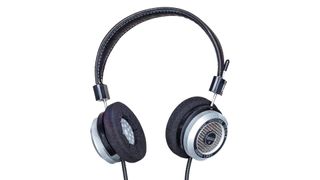
1. The quick list
2. Best overall
3. Best cheap wireless
4. Best cheap wired
5. Best battery life
6. Best build quality
7. How to choose
8. How we test
9. Recent updates
10. FAQ
The best on-ear headphones are a good middle ground between in-ears and over-ears. They don't burrow in your ears like the former in a way that some people find too invasive, and they tend to be more portable (and less hot to wear) than the latter.
As the name suggests, these unburdensome designs perch on your ears rather than covering them completely, which is a look you might prefer or find more comfortable – especially if you want headphones as opposed to earbuds for exercise.
But with their portable, lightweight designs, you could use them for pretty any activity, whether that's commuting, working, sleeping or dedicated home listening.
While every headphone manufacturer used to have a pair or two of on-ear headphones in its line-up, fewer offer them today, with the focus on the larger, more enveloping over-ear headphones designs. Thankfully, prominent headphone brands such as Sony, Grado and new-kid-on-the-block Austrian Audio are keeping on-ear headphones alive with a set or two in their arsenal.
Our expert reviews team has tested countless pairs over the years and prides itself on having class-leading context of the market, not to mention unprecedented testing processes. So without further ado, below is our pick of the very best-value handful...

Having been testing and writing about headphones for almost 11 years, I'm one of What Hi-Fi?'s go-to reviewers for testing them, whether they are true wireless earbuds, over-ear headphones for the home or indeed those in-between on-ears. I've heard every on-ear pair on this page (and many more that haven't made the cut) and am confident they represent excellent value better than anything else on the market today. Whether you want premium or budget, wired or wireless, there should be a pair of on-ear headphones here with your name on.
The quick list
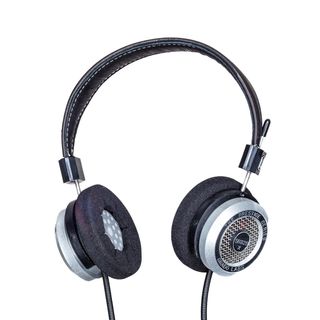
Best overall
A reasonable price, fantastically entertaining performance and sturdy build quality make the Grado SR325x the best all-rounders in our list.
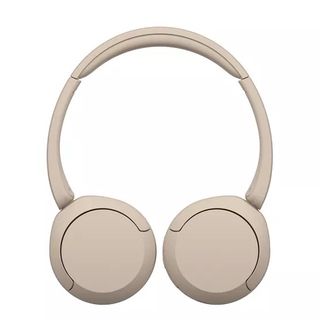
Best cheap wireless
Nothing special to look at, but these are the best wireless on-ear headphones you can buy at the budget end of the market.
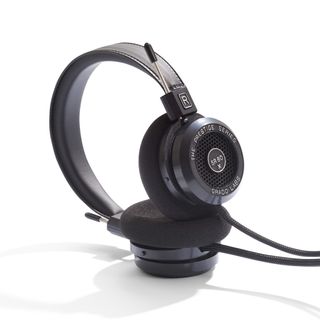
Best cheap wired
Wired on-ear headphones don't have to be pricey – the Grado SR80x are one of the most accessible pair we've tested, and they sound superb.
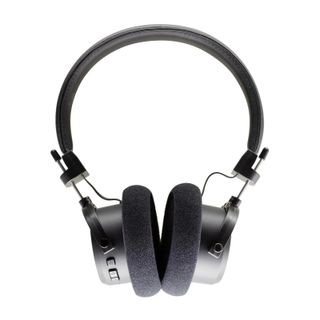
Best battery life
Grado's wireless on-ear headphones are quirky due to their open-back (i.e. leaky) design, but with excellent sound quality and 46-hour battery life, they're ideal for home use.
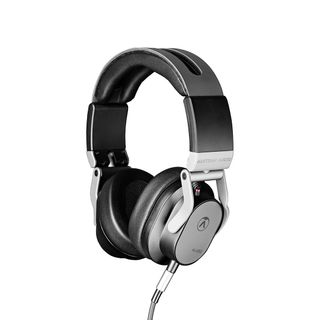
Best build quality
Austrian Audio might be a relative newcomer to the world of on-ear headphones, but you'd never guess it from the Hi-X50 – build quality is second to none.
Best overall
If you're looking for a pair of on-ear headphones for home use and can afford to spend around £300/$300/AU$450 on them, look no further.
The Prestige range of headphones has been at the core of Grado’s output since it was first introduced three decades ago. While the series has developed over the years, Grado has always done so in small evolutionary steps. The story remains the same for this new ‘x’ generation.
These wired headphones have always been detailed and articulate performers, and that hasn’t changed, but the ‘x’ generation sounds that bit more precise and insightful. They are the cleanest and clearest performers available at this price point, too.
These Grados once again prove that evolution is arguably a more reliable way of making things better than a headline-grabbing design revolution. Just be aware that these are open-backs and so leak a little sound in and out, hence their suitability for home, over street, use. And you'll get the most out of them pairing them with a DAC or decent audio source like a portable music player.
The best just got that bit better. Still What Hi-Fi? Award winners, then.
Read our full Grado SR325x review
| Attribute | Notes | Rating |
|---|---|---|
| Sound | Driver improvements really shine through | ★★★★★ |
| Comfort | The new earpads prove divisive, but stick with them | ★★★★☆ |
| Build | Grado's winning design again proves a triumph | ★★★★☆ |
Best cheap wireless
Sony's premium wireless headphones have dominated our What Hi-Fi? Awards in recent years, but the brand is increasingly targeting the budget end of the market. As the WH-CH520 show, a low price doesn't have to mean scrimping on specs – these on-ears pack an incredible 50 hours of battery life, which is the best of all the models in this list.
But there's a lot more to them than marathon battery life. The build, while a little plasticky, is solid enough to endure, and they're very comfortable (though as with any headphones at this price, they do start to heat your ears after a while).
They work with the standard Bluetooth codecs, and you can control them using Sony's superb app.
Sonically speaking, they're balanced, informative and enjoyable. True, they're not the most expressive at the low end, but the bass is solid, deep and properly controlled at the leading edges, which helps the WH-CH520 to express rhythms confidently. Midrange lacks a little clarity, but for the price it's informative and actually rather elegant. At the top of the frequency range, they balance brightness with substance well, so treble sounds have a little body to go along with their shine. There could be more detail, and dynamically they are a little inhibited, but given the price – and the battery life – we'll happily forgive them.
They have trumped our former favourites, the Sennheiser HD 250BT, which are now hard to come by as they seemingly reach the end of their shelf life. You should know, too, that the over-ear siblings to these Sonys, the WH-CH720, are current What Hi-Fi? Award winners and add noise-cancelling to the mix for not much more money.
Read our full Sony WH-CH520 review
| Attribute | Notes | Rating |
|---|---|---|
| Sound | Balanced and engaging | ★★★★★ |
| Features | 50 hours of battery life – stunning | ★★★★★ |
| Comfort | Lightweight plus padding = great comfort | ★★★★★ |
Best cheap wired
The SR80 have spawned many variants within the company’s Prestige Series in the three decades since launch, and the fact that they are still a part of the all-new Prestige X Series makes them the longest-running Grado model. The all-new SR80x succeed the 2014-released, multi-What Hi-Fi? Award-winning SR80e from the previous Prestige E Series – and are former award winners themselves.
Everything we like about their predecessors – their nimble-footedness, expressive, rolling dynamics, and insight across well-defined frequencies – has been inherited, and the punch and panache that have made the Prestige models such born entertainers are very much also part of the SR80x’s sonic signature. These are far from rich or even warm in tone, but an extra generous sprinkling of refinement this time round has made their forward, clinical presentation all the more palpable.
Grado hasn’t torn up its own rulebook and revolutionised its legendary headphones, because it hasn’t needed to. But the tweaks made to the SR80x have certainly added value in the right direction.
At this money, the SR80 model remains the finest budget on-ear headphones for home listening in the market.
Read our full Grado SR80x review
| Attribute | Notes | Rating |
|---|---|---|
| Sound | These are punchy, musical performers | ★★★★★ |
| Comfort | The lightweight and padded headband make them very comfortable indeed | ★★★★☆ |
| Build | Much more premium than their price suggests | ★★★★☆ |
Best overall
Like their predecessors (the GW100), the GW100x are something of a paradox and once again see Grado occupying a niche corner of the market. They are a Bluetooth-ready, supposedly portable pair of cans that don’t fold away, leak sound (because of their open-back design) and don't have active noise cancellation, putting them in a strange, somewhat contradictory position compared with pretty much every other pair of wireless headphones.
Still, if you want a pair of wire-free headphones for use in a quiet place – perhaps while you're on a dog walk or pottering around at home or in the garden – the GW100x won't let you down. They're one of the best-sounding wireless headphones we've heard at this price – supremely clean and detailed – and complement those sonic skills with a fantastic battery life (46 hours on half volume), aptX Adaptive Bluetooth support and a lightweight, on-ear build.
We’ve dubbed Grado the kings of open-back headphones in the past for their renowned efforts in the wired space, and with the excellent and hugely listenable GW100x, that crown remains firmly in place.
Read our full Grado GW100x review
| Attribute | Notes | Rating |
|---|---|---|
| Sound | Clean, spacious and highly musical | ★★★★★ |
| Comfort | Lightweight and unburdensome | ★★★★★ |
| Build | Not lookers exactly, but well made | ★★★★☆ |
Best build quality
If you want traditional, wired on-ears that don't leak sound like the Grados above do, this Austrian Audio pair is your best bet.
Austrian Audio may not be the most interesting of names for a new hi-fi manufacturer, but the people behind it are ex-AKG employees and some of the most experienced in the industry. And that maturity shines through in its Hi-X50 on-ear headphones.
They're beautifully built, with an extensive use of metal in the headphone band. Add to that the folding hinges and mounting brackets, and you got a pair of cans that feel much sturdier and well built than their more plasticky rivals.
You can replace certain components too (like the headband cushioning and memory foam earpads), if they wear out due to wear and tear. This is not only great for the user, as it'll save a fortune on buying new headphones, but it's also better for the environment.
On the sound side, they do tend to favour analysis over enthusiasm, but it never tips over into unemotional or clinical territory. If you want to hear deep into the recording and track subtle instrumental strands, these cans do it better than almost anything else we’ve heard at this level (certainly if we stick to closed-back rivals).
If you’re looking for well-designed wired on-ear headphones for portable or domestic use, these Austrian Audios should be right at the top of your shortlist.
Read our full Austrian Audio Hi-X50 review
| Attribute | Notes | Rating |
|---|---|---|
| Sound | Even-handed, without favouring any part of the frequency range | ★★★★★ |
| Comfort | Light and easy to ignore (in a good way) | ★★★★☆ |
| Build | Superb, and with swappable components | ★★★★★ |
How to choose on-ear headphones
When choosing which of the best on-ear headphones is right for you, you'll want to ask yourself what features are important to you. Are Bluetooth wireless headphones a must? Do you want active noise cancellation too? Or are you after a pair of wired headphones that will deliver the absolute best performance possible for your budget?
Then there's the question of what style you are after. In the case of wired headphones (and those wireless Grados above), open-backed pairs deliver wonderfully open sound quality, but they leak the music like nobody's business and are therefore often limited to at-home use only. Closed-backed pairs, however, are more common for on-ear headphones and don't leak sound much, making them more commute-friendly.
You should also consider how portable you need a pair to be. Most (but not all) pairs can physically fold up to fit in a pocket or small bag, and some are so light you could forget you have them on you. We'd always suggest checking out the fit in a shop if you can – not least if you're looking for on-ear headphones to workout in, or at least check the weight specification.
In the case of wireless headphones, check you're happy with quoted battery lives as well as Bluetooth codec support. If your phone or other music source is compatible with a higher-quality codec such as LDAC or a flavour of aptX, you can benefit from that by acquiring headphones that also support it.
How we test on-ear headphones
We have state-of-the-art testing facilities in London and Reading, where our team of experienced, in-house reviewers test the majority of hi-fi, audio and AV kit that passes through our door.
Of course, testing on-ear headphones doesn't often require such facilities. What is important in our headphones reviewing process is that each pair is a) used as they are intended, out and about or at home depending on their style and type, and b) compared to the best in its price and style class – whether that's one standout pair or a few we favour the highest among the 100+ pairs we listen to each year for reviews and What Hi-Fi? Awards judging.
As What Hi-Fi? is all about comparative testing, we keep class-leading products in our stockrooms so we can always compare new products to ones we know and love, allowing us to gauge how good a pair is in the context of the wider market.
We are always impartial and make sure we hear every product at its very best, so we'll try plenty of different types of music and give them plenty of listening time (and time to run in), while the wired headphones that might warrant being used with a DAC are tested with a suitable one. It's not just about sound quality, of course. If a pair has active noise cancellation, we'll ensure part of our testing involves using them in different environments. Comfort, battery life and portability are all considered to help form overall ratings.
You can read more about how we test and review products at What Hi-Fi? here.
Recent updates
- March 2024: Added the Grado GW100x as a premium wireless on-ear option for its excellent sound quality and equally excellent battery life.
- January 2024: Added an FAQ section (below) to help inform readers in their buying decision.
- November 2023: Labelled the Grado SR325x (our best overall pick) as a What Hi-Fi? Award winner following its successive win.
- October 2023: Added the Sony CH-520N as our cheap wireless on-ear recommendation after it came away with a glowing five-star review.
FAQ
What's the difference between on-ear and over-ear headphones?
They often look similar, but over-ear headphones cover the whole ear, with the earpads resting on your head, whereas on-ear headphones' earpads are smaller and sit against the ear. On-ears are therefore physically less burdensome, though they don't tend to envelop you in sound as much as over-ears do.
What is better, in-ear or on-ear headphones?
It depends on your preference and where you'll be wearing them. With their small size, in-ears are great for commuting, but some people find them too intrusive. On-ears are arguably better for home listening, especially if they are open-backed and hence leak sound.
Are over-ear or on-ear headphones better for noise cancelling?
Typically, over-ear headphones are better for noise cancelling. Because they cover the whole ear, they already have a passive 'noise isolating' effect – i.e. they block the wearer off from the outside world. Therefore any active noise cancellation will seem much more effective because outside sounds have already been made to sound less loud.
Useful links
Why you can trust What Hi-Fi?
- Our pick of the best wireless headphones you can buy
- Prefer over-ears? Here are the best over-ear headphones on the market
- And the best in-ear headphones for those after earbuds
- Not sure? Check out our advice on how to choose the right pair of headphones

